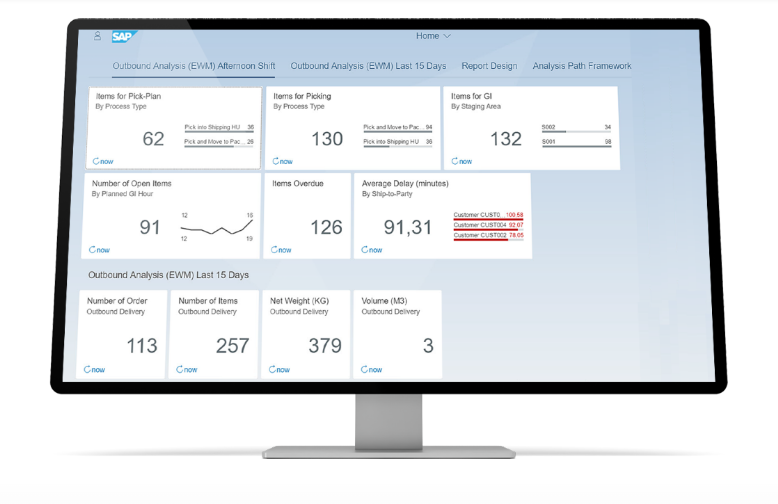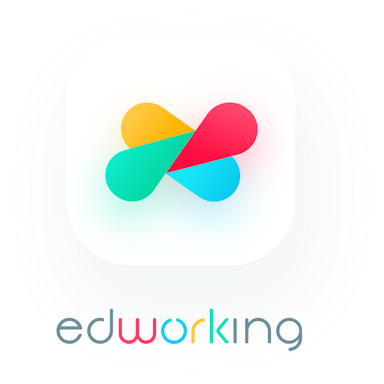As businesses expand their operations across borders and strive to meet rapidly changing consumer demands, the need for efficient logistics management is at an all-time high. Logistics software helps companies orchestrate complex processes from warehousing to delivery, ensuring that products reach their destinations efficiently and cost-effectively.
When selecting the best logistics software for 2025, several key criteria come into play. These include the ability of the software to integrate seamlessly with existing systems, its scalability to accommodate business growth, real-time data tracking capabilities, and robust analytical tools to make informed decisions. Each of these factors plays a vital role in ensuring that the chosen software can not only meet the current demands of a business but also adapt to its evolving needs. With these criteria in mind, this blog post will guide you through the top 10 logistics software solutions for 2025, helping you find the perfect match for your business's unique challenges and opportunities.
 What to Look for in a Logistics Software
What to Look for in a Logistics Software
Choosing the right logistics software is pivotal for streamlining your supply chain operations. This section will highlight the essential features that you should consider when evaluating different logistics software solutions.
Integration Capabilities
Ease of Integration with Existing Systems

A crucial aspect of selecting logistics software is its ability to integrate seamlessly with the systems you already have in place. The smoother the integration, the less disruption to your ongoing operations, leading to a more cohesive workflow. The best logistics software should offer plug-and-play capabilities with widespread enterprise resource planning (ERP) systems and other standard supply chain management tools, minimizing the need for extensive IT intervention and reducing integration costs.
Compatibility with Various Platforms
In today's diverse tech environment, logistics software must be compatible with a variety of operating systems and platforms, from traditional Windows and macOS to mobile interfaces on iOS and Android. This compatibility ensures that stakeholders can access critical information across different devices, enhancing communication and operational efficiency. The best solutions will provide a consistent experience across all platforms, ensuring that every team member, regardless of their preferred device, has access to the tools they need.
Scalability and Flexibility
Adjusting to Business Growth
As businesses expand, their logistics needs evolve. The ideal logistics software must not only meet your company's current needs but also grow with your business. This means looking for software that offers scalable solutions, which can handle increasing volumes of orders and complexity without compromising performance. Software that offers modular upgrades or scalable cloud-based services can be particularly beneficial as they allow you to add more functionality as your business grows.
Customization Options
Different businesses have unique needs based on their specific operational processes and customer demands. Therefore, logistics software that offers wide-ranging customization options is a significant advantage. Whether it's custom workflows, user interfaces, or reporting features, being able to tailor the software to fit your precise requirements can dramatically improve efficiency and user adoption rates.
Real-Time Tracking and Analytics
GPS Tracking Features
In logistics, the ability to track shipments in real-time is a game-changer. Advanced GPS tracking capabilities allow logistics managers to monitor the exact location of their goods at all times, which is crucial for optimizing delivery routes and reducing delays. This feature also enhances transparency with customers, who increasingly expect real-time updates about their orders.
Analytical Tools for Data-Driven Decisions
Data is a gold mine when it comes to logistics management. High-quality logistics software will offer robust analytical tools that help you extract actionable insights from your data. These tools should provide comprehensive reports on everything from delivery times and route efficiency to inventory levels and customer service metrics. By harnessing the power of data, businesses can make informed decisions that enhance operational efficiency and improve customer satisfaction.
By focusing on these essential features—integration capabilities, scalability and flexibility, and real-time tracking and analytics—you can ensure that the logistics software you choose is well-suited to drive your business forward in the competitive landscape of 2025.
 Top 10 Logistics Software in 2025
Top 10 Logistics Software in 2025
 1. SAP Logistics
1. SAP Logistics
SAP Logistics stands out as a robust, comprehensive logistics software solution tailored for managing the complete lifecycle of supply chain operations. Designed to streamline everything from manufacturing to delivery, SAP Logistics is a favorite among enterprises seeking deep functionality combined with industry-leading technology.
Key Features

Integrated Logistics and Transportation Management
SAP Logistics integrates seamlessly with your existing business processes to provide a unified solution for managing logistics and transportation. This integration allows for smoother coordination between procurement, warehousing, and delivery, reducing delays and lowering costs.
Advanced Analytics for Supply Chain Optimization
SAP Logistics leverages advanced analytics to help businesses optimize their supply chain operations. By analyzing historical data and real-time inputs, the software provides actionable insights that can lead to improved decision-making, better resource management, and enhanced operational efficiency.
Real-Time Data Processing and Visibility Across Global Operations
One of SAP Logistics’ most compelling features is its capability to process and display data in real-time. This feature is critical for businesses operating on a global scale, as it provides a comprehensive view of logistics operations across all locations. Real-time visibility helps in managing and mitigating risks promptly and ensures that all parts of the supply chain are functioning cohesively.
Pricing and Plans
SAP Logistics does not have a one-size-fits-all pricing structure. Instead, it offers custom pricing that varies based on the specific modules a company chooses to implement and the scale of their operations. This approach allows businesses to tailor the software to their unique needs without paying for unnecessary features. Companies interested in SAP Logistics can request a consultation to receive a tailored quote that aligns with their operational requirements and budget constraints.
SAP Logistics is ideal for large enterprises and organizations that require a detailed, scalable solution capable of managing complex, multifaceted supply chain activities. Its customizability, combined with powerful analytics and real-time data capabilities, makes it a top choice for businesses looking to enhance their logistics and transportation management efficiency.
 2. Oracle NetSuite
2. Oracle NetSuite
Oracle NetSuite offers a cloud-based logistics solution that caters to the needs of businesses across various sizes, from small startups to large enterprises. Its focus on automation and scalability makes it an ideal choice for companies looking to optimize their supply chain operations in a flexible, cloud-enabled environment.
Key Features
End-to-End Supply Chain Management
Oracle NetSuite provides a comprehensive suite of tools designed to manage every aspect of a company's supply chain. From procurement and warehouse management to logistics and fulfillment, NetSuite offers a centralized platform that streamlines operations and enhances visibility across the entire supply chain.
Automation of Core Processes such as Order Processing and Inventory Tracking
One of Oracle NetSuite's standout features is its ability to automate essential supply chain processes. This automation includes sophisticated algorithms for order processing, inventory tracking, and replenishment. By automating these critical tasks, NetSuite reduces manual errors, saves time, and increases overall operational efficiency.
Built-In Compliance Management for Various Regions
Operating in multiple regions brings complex compliance challenges. Oracle NetSuite addresses this by including built-in compliance management features that help businesses adhere to regional and global regulations. This ensures that companies can expand their operations into new markets while maintaining compliance with local laws and standards.
Pricing and Plans
Oracle NetSuite’s pricing model is based on a monthly subscription, which begins at $999. This base price covers the core functionalities needed by most businesses, with additional costs incurred per user. This pricing structure allows businesses to scale their usage based on growth and specific needs, ensuring that they only pay for the resources they use.
Oracle NetSuite's robust feature set, combined with its flexible, cloud-based platform, makes it a powerful tool for businesses seeking to modernize their supply chain operations. Its focus on automation, coupled with effective compliance management, provides businesses with the necessary tools to enhance efficiency while adapting to the dynamic global market conditions.
 3. Blue Yonder
3. Blue Yonder
Blue Yonder, formerly recognized as JDA Software, is a leader in AI-driven logistics software. It has carved a niche for itself by providing businesses with predictive insights and enhanced real-time visibility, which are crucial for modern, dynamic supply chain operations.
Key Features

AI and Machine Learning Capabilities for Predictive Supply Chain Planning
Blue Yonder utilizes cutting-edge artificial intelligence (AI) and machine learning (ML) technologies to revolutionize supply chain planning. These technologies analyze vast amounts of data to forecast future demands and potential disruptions, allowing businesses to proactively adjust their strategies and maintain efficient operations despite uncertainties.
Robust Warehouse Management and Fulfillment Solutions
The software offers comprehensive warehouse management solutions that optimize space, manage resources efficiently, and automate complex fulfillment processes. This capability ensures that businesses can meet customer demands promptly and accurately, improving overall satisfaction and loyalty.
Seamless Integration with IoT Devices
Blue Yonder excels in its integration capabilities, particularly with Internet of Things (IoT) devices. This integration allows for the continuous monitoring and collection of data from across the supply chain, enhancing operational transparency and enabling more informed decision-making.
Pricing and Plans
Pricing for Blue Yonder is tailored to each business's specific needs, taking into account the scale of deployment and the range of features required. This customized pricing ensures that companies pay for only what they need, making Blue Yonder a cost-effective solution for businesses looking to leverage AI in their logistics operations.
Blue Yonder is particularly suitable for large enterprises and organizations that require deep, data-driven insights to manage complex, global supply chains. Its ability to predict future trends and seamlessly integrate with technological advancements offers significant competitive advantages, making it a top choice for businesses committed to maintaining cutting-edge logistics operations.
 4. Infor CloudSuite Supply Management
4. Infor CloudSuite Supply Management
Infor CloudSuite Supply Management is a specialized software solution tailored for industries with complex supply chains, such as healthcare and manufacturing. Its design caters to the unique challenges faced by these sectors, providing robust tools to manage intricate supply chain dynamics effectively.
Key Features
Industry-Specific Solutions for Supply Chain Management
Infor CloudSuite stands out by offering customized solutions that address the specific needs of different industries. For sectors like healthcare and manufacturing, the software provides functionalities that ensure compliance with industry standards, manage the supply chain's integrity, and streamline operations from production to delivery.
Advanced Procurement and Sourcing Tools
This software includes advanced procurement features that facilitate strategic sourcing and vendor management. These tools help businesses optimize their purchasing processes, negotiate better terms, and enhance supplier relationships. By leveraging these advanced tools, companies can achieve significant cost savings and improve their supply chain's efficiency.
Cloud-Based Deployment for Scalability and Security
Infor CloudSuite is deployed in the cloud, which provides scalability to accommodate business growth and fluctuations in demand. This cloud-based approach ensures that businesses can expand their operations without the need for significant upfront investments in IT infrastructure. Additionally, the platform's security features are robust, protecting sensitive data and ensuring compliance with regulations, which is especially critical for industries like healthcare.
Pricing and Plans
Infor CloudSuite offers customized pricing models that are tailored to the specific needs and scale of each business. Pricing details are provided upon request and are designed to match the unique demands of the business's sector, size, and specific supply chain requirements. This tailored approach ensures that companies receive the most value from their investment in the software.
Infor CloudSuite Supply Management is an ideal choice for businesses in sectors with stringent requirements and complex supply chains. Its industry-specific features, combined with powerful procurement tools and a secure, scalable cloud infrastructure, make it a formidable solution for managing the detailed and critical supply chain processes inherent to industries like healthcare and manufacturing.
 5. Manhattan Associates
5. Manhattan Associates
Manhattan Associates is renowned for its versatile platform that effectively handles both warehouse and transportation management. This dual focus makes it a strong contender for businesses looking to enhance efficiency and accuracy across their supply chain operations.
Key Features

Optimization of Transportation Routes and Schedules
Manhattan Associates' software excels in optimizing transportation logistics, which is critical for reducing delivery times and costs. Its sophisticated algorithms analyze numerous variables to determine the most efficient routes and schedules, helping businesses maximize their fleet utilization and reduce fuel consumption.
Real-Time Inventory Management and Order Fulfillment
The platform offers advanced real-time inventory management capabilities that ensure accurate stock levels are maintained across multiple locations. This feature is pivotal for avoiding stockouts and overstock situations, which can significantly impact a business's profitability. Moreover, the system enhances order fulfillment processes by synchronizing inventory data with order management systems, enabling quicker and more accurate order processing.
Integration with Existing ERP Systems
A key advantage of Manhattan Associates is its ability to seamlessly integrate with a wide range of existing Enterprise Resource Planning (ERP) systems. This integration capability allows for a unified view of all supply chain activities, making it easier to manage and optimize operations without the need to replace current systems.
Pricing and Plans
The pricing for Manhattan Associates is modular, meaning it varies based on the specific features and capabilities a business requires. This approach allows companies to tailor the software to their unique needs, paying only for the functionalities they use. Interested businesses should contact Manhattan Associates directly to discuss their specific requirements and receive a custom quote tailored to their operational needs and budget.
Manhattan Associates is ideal for companies that need robust and integrated solutions for managing both warehousing and transportation aspects of their supply chains. Its ability to optimize routes, manage real-time inventory, and integrate with existing systems makes it a valuable tool for enhancing operational efficiency and responsiveness in today’s fast-paced market environments.
 6. HighJump
6. HighJump
HighJump stands out in the logistics software market for its adaptable and comprehensive supply chain management solutions, with a particular strength in warehouse and workforce management. Designed to cater to the varying needs of modern businesses, HighJump offers a flexible approach to managing logistics operations efficiently.
Key Features
Customizable Warehouse Management System
HighJump's warehouse management system (WMS) is highly customizable, allowing businesses to tailor the software to their specific operational requirements. This adaptability ensures that companies can optimize their warehouse layouts, inventory control, and order fulfillment processes, leading to improved efficiency and reduced operational costs.
Direct Store Delivery and Mobile Sales Solutions
HighJump provides robust solutions for direct store delivery (DSD) and mobile sales, which are essential for businesses that require mobility and on-the-go sales capabilities. These features enable companies to streamline their sales and distribution processes, enhancing customer service and speeding up transaction times.
Advanced Reporting and Analytics
With HighJump's advanced reporting and analytics capabilities, businesses can gain valuable insights into their supply chain operations. The software analyzes data across various metrics, providing detailed reports that help managers make informed decisions to optimize processes, reduce waste, and increase profitability.
Pricing and Plans
HighJump offers pricing that is tailored to the specific needs of each business. The cost varies depending on the functionalities selected and the scope of deployment, allowing companies to scale their solution in alignment with their growth and budgetary constraints. Interested businesses should contact HighJump directly to discuss their needs and obtain a pricing quote that reflects their unique requirements.
HighJump is an excellent choice for businesses looking for a logistics solution that offers extensive customization options and supports a wide range of operational models. Its focus on warehouse and workforce management, combined with powerful mobile sales features and sophisticated analytics, makes it a versatile tool that can adapt to the evolving needs of modern supply chains.
 7. Descartes Systems Group
7. Descartes Systems Group
Descartes Systems Group is renowned for its excellence in global logistics solutions and geographic compliance, making it a premier choice for businesses engaged in international operations. Its comprehensive suite of tools is specifically designed to address the complexities of managing logistics across multiple geographies.
Key Features
Global Logistics Network with Compliance Solutions
Descartes Systems Group offers a robust global logistics network that provides seamless compliance solutions tailored to various international regulations. This feature is crucial for businesses operating across borders, as it ensures adherence to diverse customs, trade regulations, and import/export compliance requirements, thereby minimizing legal risks and avoiding penalties.
Route and Load Optimization for Freight
To enhance operational efficiency, Descartes provides advanced route and load optimization tools that help logistics managers determine the most efficient paths for their deliveries. These tools consider factors such as distance, vehicle capacity, and delivery windows, ensuring optimal utilization of resources and timely deliveries.
Real-Time Network Communication Capabilities
A standout feature of Descartes Systems Group is its ability to facilitate real-time communication across the logistics network. This capability enables all stakeholders, from suppliers to distributors, to stay informed and coordinate effectively, enhancing overall supply chain responsiveness and agility.
Pricing and Plans
Descartes Systems Group employs a subscription-based pricing model, which allows businesses to choose services based on their specific needs. The cost can vary depending on the scope and scale of the logistics operations, with detailed quotes provided upon request to ensure transparency and alignment with business budgets and requirements.
Descartes Systems Group is ideally suited for multinational companies requiring sophisticated logistics management capabilities that span multiple countries and comply with international laws. Its specialized compliance solutions, coupled with advanced routing and real-time communication tools, make it an invaluable asset for any business looking to streamline its global logistics operations.
 8. IBM Sterling Supply Chain
8. IBM Sterling Supply Chain

IBM Sterling Supply Chain is a cutting-edge platform that leverages artificial intelligence (AI) to provide businesses with deep insights and enhanced connectivity across complex supply chains. This software is designed to cater to organizations that require high levels of transparency and efficiency in their logistics operations.
Key Features
Blockchain for Transparent Supply Chain Transactions
IBM Sterling incorporates blockchain technology to ensure transparency in supply chain transactions. This feature provides an immutable record of all transactions, enhancing trust among all parties involved by providing a clear, verifiable trail that can help resolve disputes, reduce fraud, and ensure compliance.
AI to Predict and Mitigate Disruptions in Real-Time
One of the standout features of IBM Sterling is its use of AI to predict potential supply chain disruptions before they occur. This predictive capability allows businesses to proactively adjust their strategies, minimizing the impact of disruptions on operations. AI also helps optimize supply chain performance by analyzing patterns and suggesting improvements.
Deep Integration with IBM’s Business Applications
IBM Sterling is designed to integrate deeply with other IBM business applications, such as Watson AI, Cloud, and IoT solutions. This integration provides a seamless user experience and allows businesses to leverage a broad array of IBM’s advanced technologies to enhance their supply chain management capabilities.
Pricing and Plans
IBM Sterling offers customized pricing that varies depending on the specific needs and scale of a business's operations. The company provides quotes based on the required functionalities and the integration complexity, ensuring that businesses only pay for what they need. This tailored pricing approach helps organizations manage costs effectively while benefiting from advanced supply chain solutions.
IBM Sterling Supply Chain is particularly well-suited for large enterprises and organizations that require robust, AI-enhanced tools to manage their complex and dynamic supply chains. With its focus on transparency, predictive capabilities, and deep integration with other business technologies, IBM Sterling provides a powerful platform for improving supply chain resilience and efficiency.
 9. Freightview
9. Freightview
Freightview offers a streamlined and user-friendly platform designed specifically for small to medium-sized businesses that manage their own freight logistics. Its focus on simplifying freight management makes it an attractive option for companies looking to optimize their shipping processes without the complexity often associated with larger, more comprehensive logistics systems.
Key Features
Streamlined Freight Booking and Management
Freightview provides a centralized platform where businesses can easily book, track, and manage their freight shipments. This streamlined approach reduces the administrative burden associated with freight management, enabling businesses to save time and reduce errors. The intuitive interface ensures that even users with minimal training can effectively manage their freight operations.
Comparison of Rates Across Carriers
One of Freightview’s standout features is its ability to compare rates across multiple carriers in real time. This functionality allows businesses to make informed decisions about their shipping options, ensuring they get the best possible rates and service levels for their freight needs. By facilitating easy rate comparison, Freightview helps businesses reduce shipping costs and improve their bottom line.
Easy Integration with Existing Systems
Freightview is designed to integrate seamlessly with existing business systems, such as enterprise resource planning (ERP) and warehouse management systems (WMS). This integration capability ensures that businesses can maintain a unified approach to their logistics and supply chain management, enhancing overall operational efficiency.
Pricing and Plans
Freightview offers an affordable pricing model starting at $99 per month for basic features, making it an accessible option for small to medium-sized businesses. The subscription includes access to all the core functionalities needed to manage freight efficiently. For businesses requiring more advanced features or higher volumes of shipments, Freightview provides scalable options that can grow with the business.
Freightview is an excellent choice for small to medium-sized enterprises (SMEs) that need a straightforward, cost-effective solution for managing their freight operations. Its capabilities in rate comparison, ease of use, and integration make it a valuable tool for companies looking to enhance their logistics without the need for significant investment in complex software or extensive training.

10. ShipBob
ShipBob is a comprehensive fulfillment solution tailored specifically for e-commerce businesses. It focuses on providing end-to-end services that streamline the entire order fulfillment process, from storage to shipping, making it an ideal choice for online retailers looking to optimize their logistics and enhance customer satisfaction.
Key Features
End-to-End Fulfillment Services
ShipBob offers complete fulfillment services that cover every aspect of the order fulfillment cycle. This includes warehousing, picking, packing, shipping, and handling returns. By managing all these elements, ShipBob allows e-commerce businesses to focus on growing their sales and marketing efforts while ensuring that their customers receive their purchases promptly and in excellent condition.
Real-Time Inventory Tracking and Management
One of ShipBob's strengths is its real-time inventory management system, which provides e-commerce businesses with up-to-date visibility of their stock levels across multiple locations. This feature is crucial for maintaining inventory accuracy, preventing stockouts, and planning for restocking. It also helps businesses make informed decisions about inventory distribution based on sales trends and customer geography.
Integration with Major E-commerce Platforms
ShipBob seamlessly integrates with major e-commerce platforms such as Shopify, Magento, BigCommerce, and WooCommerce. This integration ensures that order and inventory data are automatically synced across platforms, simplifying the management process and reducing the likelihood of errors. It also provides a smoother experience for both the business and its customers by streamlining the transition from order placement to fulfillment.
Pricing and Plans
ShipBob's pricing model is designed to scale with the size and needs of your business. Costs are based on the amount of storage space used and the volume of orders processed, making it a flexible option for e-commerce businesses of all sizes. This pay-as-you-go approach allows businesses to adjust their expenses based on seasonal fluctuations and growth, providing more control over costs without sacrificing service quality.
ShipBob is especially suitable for e-commerce businesses that require a reliable, scalable fulfillment partner. Its robust set of features, including end-to-end fulfillment services, real-time inventory management, and seamless integration with e-commerce platforms, makes it a powerful tool for businesses aiming to improve their operational efficiency and customer service.
 The Main Differences Between Popular Logistics Software
The Main Differences Between Popular Logistics Software
Choosing the right logistics software can be daunting due to the variety of options available, each with its own unique set of features and benefits. Understanding the main differences between popular logistics software can help businesses pinpoint the solution that best fits their specific needs. Here, we'll highlight the distinct attributes of each software discussed earlier, using the expression "The main difference between..." to clarify these distinctions.
The main difference between SAP Logistics and Oracle NetSuite lies in their target user base and customization capabilities. SAP Logistics is designed primarily for large enterprises that require a highly customizable platform tailored to complex, global supply chain operations. In contrast, Oracle NetSuite offers a more standardized cloud-based solution that serves a broader range of business sizes, focusing on automation and scalability with less emphasis on deep customization.
The main difference between Blue Yonder and Infor CloudSuite Supply Management is their approach to technology and industry specialization. Blue Yonder utilizes advanced AI and machine learning to provide predictive analytics and real-time data processing, making it ideal for companies that prioritize cutting-edge technology to foresee and mitigate supply chain disruptions. On the other hand, Infor CloudSuite is more focused on delivering industry-specific solutions, particularly for sectors like healthcare and manufacturing, where compliance and specialized functionalities are crucial.

The main difference between Manhattan Associates and HighJump revolves around their primary functionalities within the supply chain. Manhattan Associates excels in optimizing warehouse operations and transportation management, making it suitable for businesses that need robust, integrated solutions to manage both aspects. HighJump, however, offers greater flexibility in its warehouse management systems and is known for its customizable features that can be tailored to fit a variety of business models and workflows.
The main difference between Descartes Systems Group and IBM Sterling Supply Chain is their emphasis on geographic compliance and advanced technology integration, respectively. Descartes provides comprehensive solutions for global logistics with strong geographic compliance capabilities, which is essential for international operations. IBM Sterling, meanwhile, integrates advanced technologies like AI and blockchain to enhance transparency and efficiency in supply chain transactions, appealing to businesses that value security and innovation.
The main difference between Freightview and ShipBob focuses on the scale of operations and specific user needs within the e-commerce sector. Freightview is targeted at small to medium-sized businesses that need straightforward, cost-effective tools for managing freight and comparing carrier rates. ShipBob, in contrast, provides end-to-end fulfillment services designed specifically for e-commerce businesses looking for comprehensive solutions that include inventory management, order fulfillment, and direct integration with online sales platforms.
Understanding these key differences helps businesses not only choose a logistics software that meets their current needs but also one that aligns with their long-term growth strategies and operational priorities.
 How Edworking Can Enhance Logistics Management
How Edworking Can Enhance Logistics Management
In the fast-paced world of logistics, the integration of effective communication tools can significantly enhance operational efficiency and coordination. Edworking, a versatile platform designed for team collaboration, offers features that can be particularly beneficial in logistics management. Below, we explore how Edworking can enhance logistics operations through better integration with other tools and its unique communication features.
Integration with Other Tools
Improving Communication and Management Through Integration
Edworking provides seamless integration capabilities with various logistics management software, enhancing the overall communication flow across different levels of the supply chain. The main difference this integration makes is in how information is shared and accessed by team members, regardless of their location. By syncing data across platforms, Edworking ensures that all team members have up-to-date information at their fingertips, reducing delays caused by miscommunication or outdated data.
This integration supports real-time updates and alerts, which are crucial for managing time-sensitive logistics tasks such as shipment tracking, warehouse management, and inventory control. The ability to integrate smoothly with ERP systems, CRM solutions, and other logistics-related software makes Edworking an invaluable tool for enhancing the efficiency of communication flows within complex logistics operations.
Edworking’s Unique Communication Tools
Edworking stands out with its array of unique communication tools designed to cater to dynamic team environments. These include:
- Dedicated Project Channels: Create specific channels for different logistics projects or operations, allowing team members to focus on relevant discussions and share updates efficiently.
- File Sharing and Management: Easily share documents, such as shipping documents, customs paperwork, and inventory lists, directly within the platform. This feature ensures that everyone involved has immediate access to crucial information, streamlining the documentation process.
- Task Assignment and Tracking: Assign tasks related to logistics operations directly within Edworking and track their progress in real-time. This functionality helps in maintaining clear accountability and ensuring that critical deadlines are met.
Furthermore, Edworking’s communication tools support multimedia interactions, which are vital for conveying complex logistics information clearly and effectively. This includes the ability to share images and videos, such as loading guidelines or packaging instructions, directly within the chat or project channels.
By leveraging Edworking, logistics companies can enhance their operational workflows, improve the accuracy of their communications, and ultimately, boost their overall productivity. The integration of Edworking’s communication tools into the daily management of logistics operations not only simplifies complex processes but also enhances collaboration and decision-making across all levels of the organization.
 Conclusion
Conclusion
In the rapidly evolving landscape of global commerce, logistics management software has become an indispensable tool for businesses looking to streamline their supply chain operations. This blog post has explored a range of logistics software options, each tailored to meet different needs—from large enterprises requiring extensive customization and integration capabilities, like SAP Logistics and Oracle NetSuite, to solutions designed for specific industries or smaller businesses, such as Infor CloudSuite and Freightview.
We discussed the unique features of these top 10 logistics software solutions for 2025, highlighting how each can enhance operational efficiency through innovations in AI, real-time data processing, and integration with existing systems. The comparisons made using the expression "The main difference between..." should help you identify which software best fits your specific operational needs and strategic goals.
As logistics continues to play a critical role in maintaining the flow of goods in a globalized economy, investing in the right software can lead to significant competitive advantages. I encourage you to explore these options further to find the perfect match that not only meets your current requirements but also scales with your future growth.
To aid in your decision-making, consider leveraging tools like Edworking to enhance communication and management within your logistics operations. Edworking’s integration capabilities and unique communication tools can significantly improve coordination and efficiency across your supply chain.
Additional Resources
To further enhance your operational efficiency, consider using the following tools from Edworking:
- Paragraph Typing Test: Improve your typing skills with this free online tool.
- Communication Style Quiz: Discover your communication style to better understand how you can effectively interact and collaborate within your team.
- Management Aptitude Test: Evaluate your management skills with this free test to identify areas for improvement.
By integrating these tools, you can further refine your management and communication strategies, ensuring that your logistics operations run smoothly and more effectively.
 FAQs
FAQs
What is logistics software?
Logistics software is a tool designed to help businesses plan, execute, and manage their supply chain operations. It encompasses everything from order processing and inventory management to warehousing, transportation, and delivery. The software streamlines these processes to improve efficiency, reduce costs, and enhance customer satisfaction.
How does logistics software improve supply chain management?
Logistics software improves supply chain management by providing real-time data and analytics, automating manual processes, and facilitating communication between all stakeholders. It helps businesses optimize routes, manage inventories more effectively, and make quicker, more informed decisions, ultimately leading to more efficient operations and reduced operational costs.
Can small businesses benefit from logistics software?
Yes, small businesses can greatly benefit from logistics software. Many logistics solutions are scalable and can be tailored to the size and needs of a smaller operation. These tools can help small businesses improve accuracy, decrease costs, and enhance customer service, which are crucial for growth and competitiveness.
What are the key features to look for in logistics software?
When selecting logistics software, key features to look for include integration capabilities with existing systems, real-time tracking and analytics, scalability, and customization options. Additionally, consider the software's ability to handle transportation management and provide insightful reporting and data analysis.
How does AI enhance logistics software?
AI enhances logistics software by enabling advanced data analysis, predictive analytics, and machine learning capabilities. This technology can forecast demand, predict supply chain disruptions before they occur, and suggest optimizations, allowing businesses to proactively adjust their strategies and improve overall efficiency.
What is the typical cost of implementing logistics software?
The cost of implementing logistics software varies widely depending on the software's features, the size of the business, and specific business needs. Some solutions offer a basic package with a monthly subscription fee, while others may require a custom quote based on the modules selected and the extent of customization needed.
How does logistics software integrate with other business systems?
Logistics software typically integrates with a variety of business systems, including ERP (Enterprise Resource Planning), CRM (Customer Relationship Management), and WMS (Warehouse Management Systems). This integration allows for seamless data flow and improved information accuracy across different business functions, enhancing overall operational efficiency.













